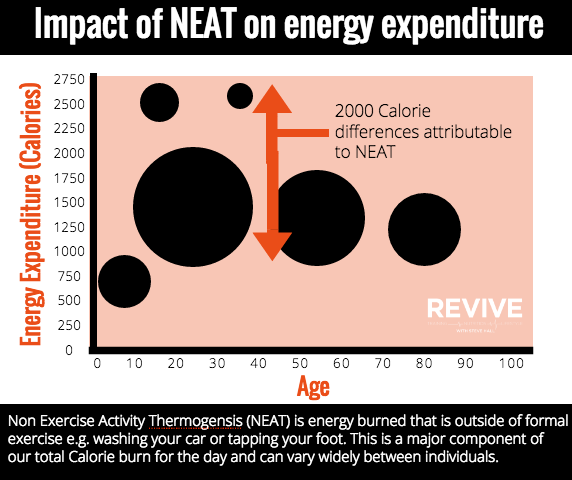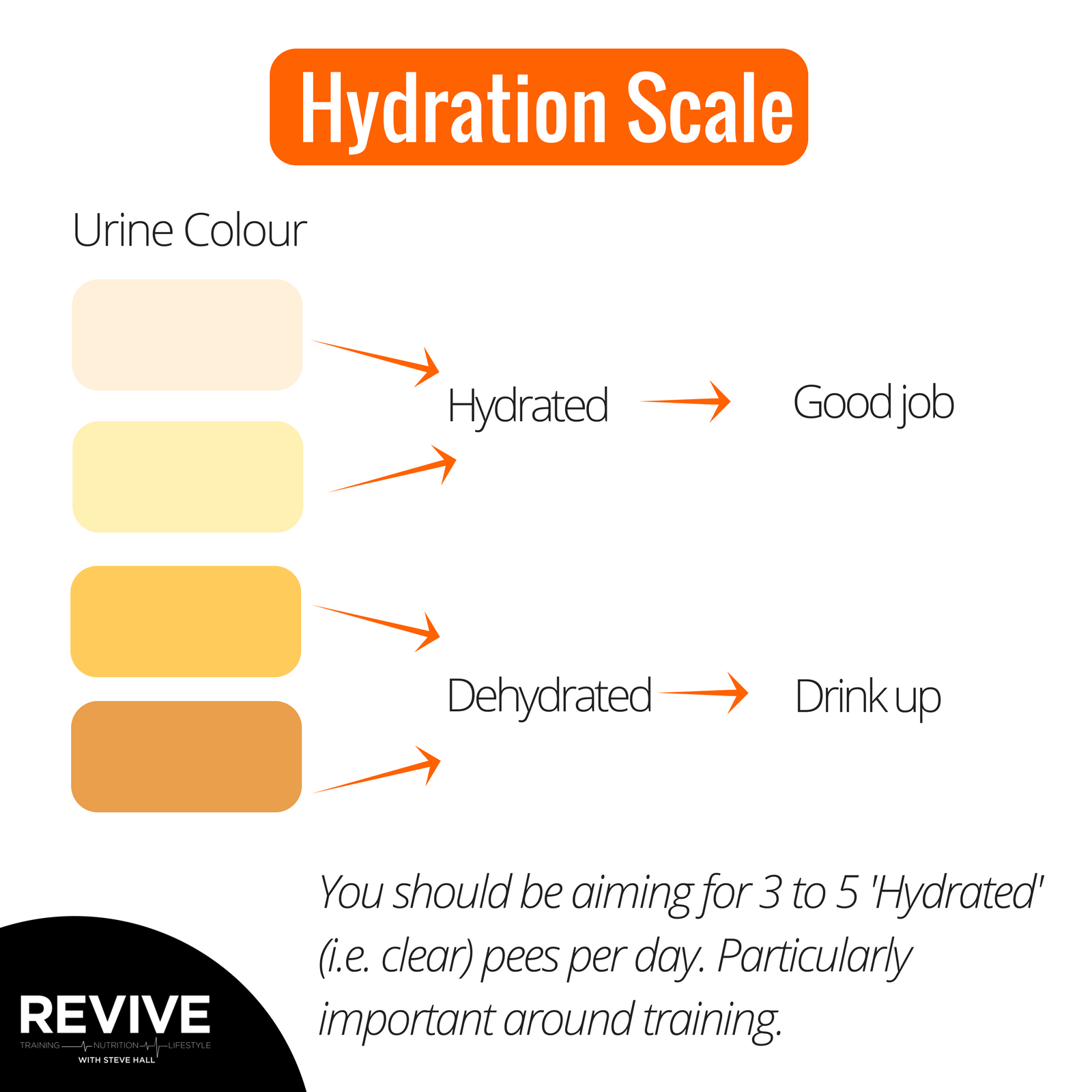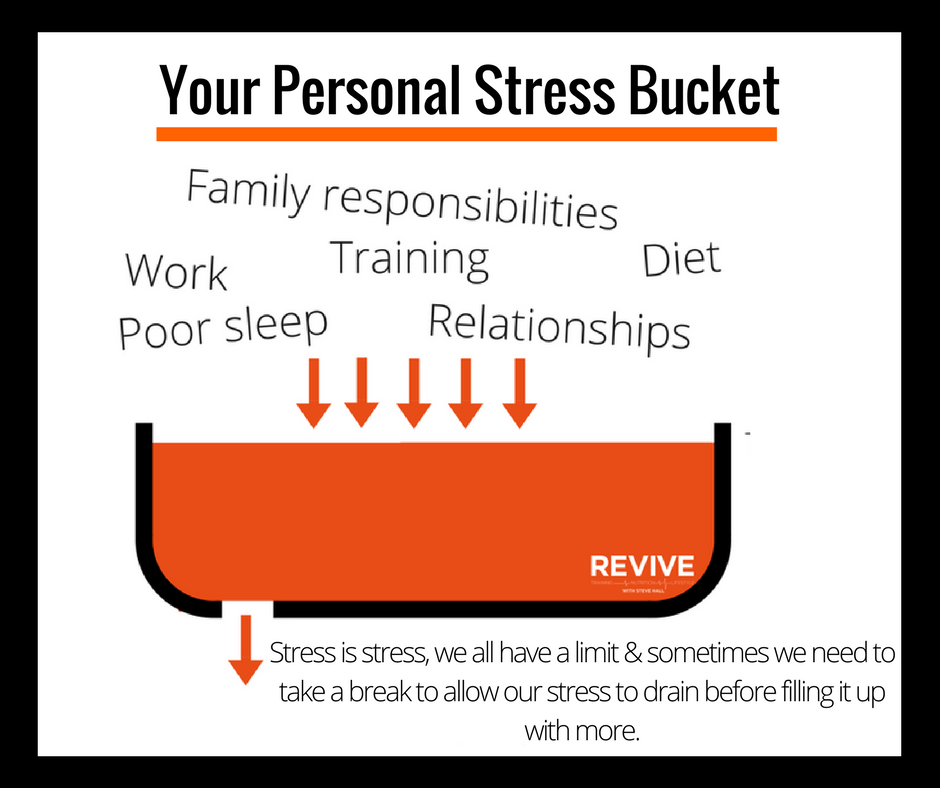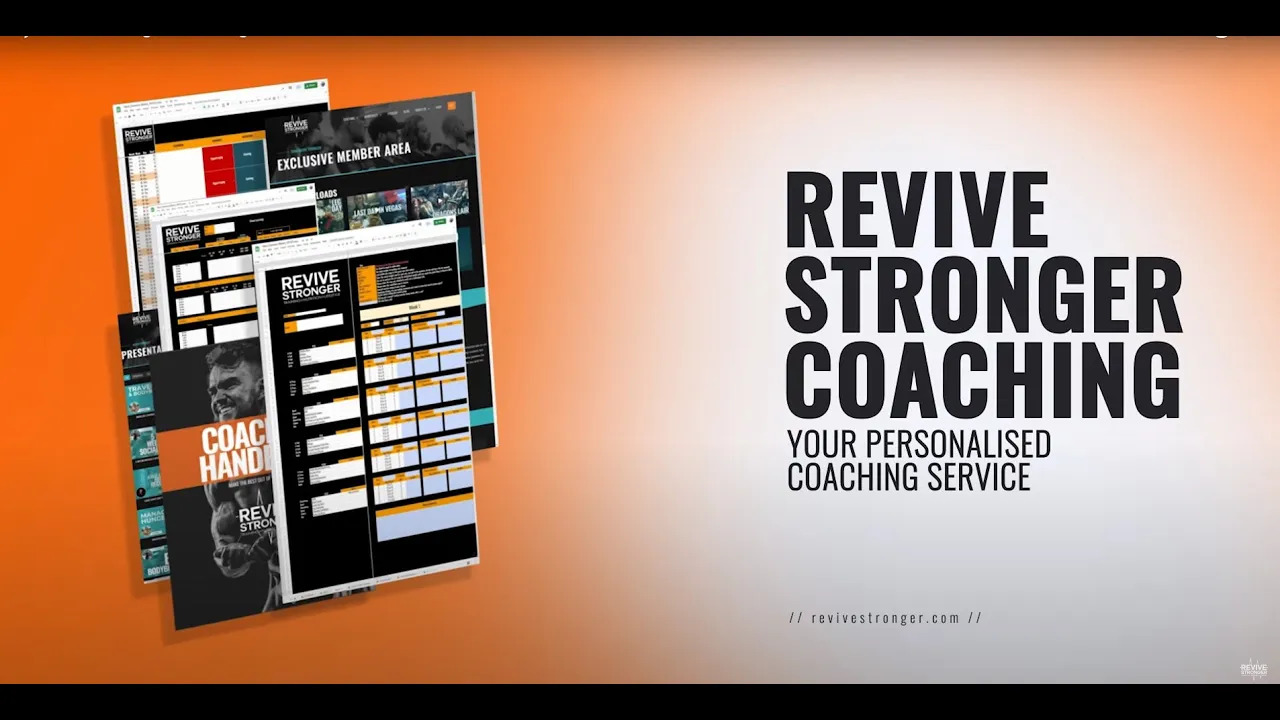
Revive Stronger
10 ways to get better sleep, today
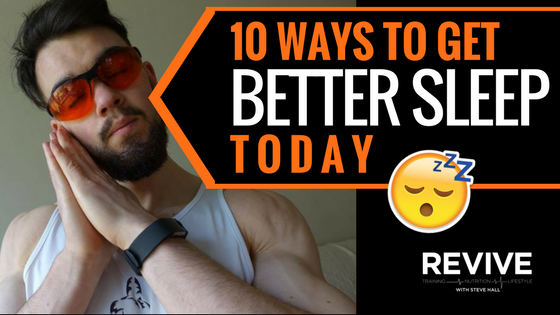
Sleep deprivation is becoming an epidemic in modern society.
Over the past 8 weeks mine has been a mess.
I’m not joking, I got up every single night of those 8 weeks. I didn’t have any problems with falling asleep, however, staying asleep was a whole different topic. When I woke up in the middle of the night I went to the bathroom and all of a sudden I was awake as if I was standing in bright sunshine in the middle of the day.
So, what do you do when you’re awake and a bodybuilder?! Of course, you’re eating something for the sake of MPS…just kidding but still, I ate something and stayed awake for an hour or two, got sleepy again and slept until the morning. I still got around 7 hours of sleep but you can’t really say that they were quality hours.
First I thought it’s only a phase and as soon as everything in my life gets a little more chilled again, I’ll get back to a better sleep pattern…well, 8 weeks past by and still no sign of improvement, so I started digging and did some research on ways to improve my sleep.
As a strength/physique athlete, we’re always trying to find the optimum. Sleep however, is often an overlooked & underestimated necessity in the success of an athlete. AJ Morris just recently told me a story about a bodybuilder who started training at Oxygen Gym, Kuwait. This is the gym in which BIG RAMY is training as well. This athlete made massive improvements in the time he was training there. When he was asked what he did differently he simply said; “Eat, Train, Rest, Sleep, Repeat..”
[bctt tweet=”Eat, Train, Rest, Sleep, Repeat” username=”revivestronger”]
When you’re looking at elite athletes nearly all of them are doing it like that.
The more taxing the sport, the more they rest.
There was even one study in which they looked at the men’s basketball team of Stanford University for 5-7 weeks in which they extended their sleep to 10h per night. The players were able to improve their throws by nearly 10%. The researchers came to the conclusion that optimal sleep is likely beneficial in reaching peak athletic performance.
Sure, this was only one study but there are dozens of other’s which show similar outcomes. I’d even go as far as calling it the most anabolic supplement you can get. Being constantly sleep deprived causes a lot of negative side effects, such as:
- Decreased Performance and Alertness
- Decreased glucose metabolism
- Elevated cortisol levels
- Increased Hunger
- Lack of focus and cognitive functions
- Decreased Fat loss
- Higher risk of injury
- Hormonal issues (secondary hypogonadism & IGF-1 reduction)
- And many more…
You don’t necessarily have to be constantly sleep deprived to experience those symptoms but they can already be present after one night of bad sleep and accumulating from there on.
Now we all knew how important sleep is all along and I don’t want to keep you waiting any longer, so here you go;
Table of Contents
1.] Don’t go to bed hungry!
It’s such a no-brainer that you wouldn’t expect it to have such a severe impact.
Still I know many people who actually go to bed hungry in the hope for that next day will come quickly and they’re then able to eat their breakfast. This change had one of the biggest impacts of me being able sleeping through the night without waking up and for a long time, I didn’t expect that this might be one solution to fix my sleep issues. All I needed to do is to reschedule my meal frequency & timing a little so that I had some macros left for a voluminous late night meal.
I’d recommend you to eat a meal consisting of a slow digesting protein source, such as casein combined with a decent amount of carbs. Why not fat? Because it seems like carbs influence the effects of tryptophan, which are those small precursors in your brain that have an effect on things like serotonin.
Additionally, this late night dinner with a slow digesting protein source could potentially give you a little benefit in terms of muscle protein synthesis (MPS) throughout the night. Check out THIS great summary about sleep recovery with casein and the potential effects on your MPS.
It became a staple for me to have a small portion of pudding oats right before bedtime.
2.] Be active throughout the day
The human body is designed to move and being active.
Even though it sometimes might not seem like it in times of media entertainment, deep inside we are still hunters and gatherers. 10,000 years in terms of evolution is only a blink of an eye. Our bodies ability to move and adapt is quite fascinating. Just to give you a small idea what we’re actually capable of doing; ever heard of the ultra-marathon through the arctic? Yes, you heard correctly! 230km of running through the arctic. So, it’s no real surprise if our body is starting to do weird things when we aren’t moving enough. Not only will it have adverse health consequences in the long term but also it will mess with your sleep big time.
Further, you’re probably aware of the cool thing called NEAT (Non-exercise activity thermogenesis). For those who aren’t, NEAT is what the name implies already, everything of your daily activity which is not exercise related. It starts with the simple gestures we make while speaking, the unconscious tapping with our feet, up to simply taking a walk or doing some stuff in the household. For more on NEAT just have a look at THIS.
Also try to avoid doing your resistance training close to bedtime, especially when it’s a taxing one. Your central nervous system (CNS) is taking some hits and you’re probably still in a sympathetic state (Fight or flight) when you’re going to bed.
3.] Stop watching Netflix
I know, I’m a “Show-a-holic” as well and I simply love watching my shows.
Every time a season ends there are 5 new seasons from other shows. However, not only will the screen of a television or notebook influence your melatonin regulation but depending on what show you’re watching, it can leave you too worked up, anxious or similar. I mean, after EP 9 season 3 of Game of thrones…come on, who wasn’t like “WHAT THE F*** IS HAPPENING RIGHT NOW?!?!”
Rather I’d recommend you reading a book.
The monotony of your inner voice will make you sleepy and so does the work your eyes have to do, couple that with no blue light coming in and voilá, the sheep’s are on their way to give you a small kiss of heavenly sleepiness.
4.] Don’t drink excessive amounts during the day
Most of the time I have the feeling that athletes tend to drink automatically a little bit more than non-trained individuals. There’s the peri-workout shakes, the coffees, simple water, etc. I find it quite easy to drink too much throughout the day and need to limit my consumption of liquids so that I don’t get up 2-3 times during the night to visit the toilet.
Also, try to avoid drinking caffeine containing beverages too close to your bedtime. Of course, it comes down to the individual and some might have no problem with caffeine in regards to their sleep but I’d suggest you having your last caffeine intake at least 4-6 hours before bed. Same goes for alcohol intake.
You may fall asleep faster but it also disrupts your sleep.
5.] Clear your mind
Do you know that feeling when you’re desperately trying to fall asleep but the thoughts in your head keep you from shutting down? It most often happens when you need the sleep most. There’s an important event the next day, you had a stressful day or a lot of work is waiting for you.
What I want you to do is this;
- Get a pen & paper
- Write down what you’ve achieved today and what you want to do tomorrow
- Gather what bothers you and how you want to address it
Writing it down will help your mind processing your thoughts and you can get to bed with an empty and relaxed mind.
6.] Environment
Everything that plays a role with your sleep quality is called “Sleep hygiene”.
A big role is the environment in which our “temple” is in. Have you ever tried falling asleep in a room with screaming heavy metal, all the lights turned on, temperature at 40° and humidity of 90%? If you’re keen, go ahead and give it a try but I highly doubt that you’ll feel well rested the next day.
Here are some things that will help you build the perfect environment;
- Dark place with a warm light source
- Appropriate room temperature & humidity
- No electronic devices
- Quiet and comfortable
- Consider a slumber mask & ear plugs
We spent 1/3.rd of our life in our bed so it makes sense that we should invest in building the best environment for it so that your bedroom is what it’s actually supposed to be; The place in which you do the things a bedroom is for, Ie. sleep, sex, relax…
7.] Avoid stress…yeah
Well, you may ask yourself why I wrote it down because we all know that stress is bad in general, right?
While you’re sleeping your body is in full physiological & psychological recovery mode. If you’re stressed your cortisol levels are high the sensation of anxiety and feeling unrested will mess with your sleep, which then again raises your cortisol levels and all the negative side effects mentioned in the beginning will present themselves.
This vicious cycle continues and get’s worse and worse over time:
Because you can’t sleep you’re stressed <—-> Because you’re stressed you can’t sleep
Find out more about stress HERE
8.] Be the master of dark and light
Eyes are a fascinating invention of nature.
They process the light spectrum that falls into them and send a signal to the brain to regulate the circadian rhythm and sleep-wake cycle. When blue and bright light enters your eyes your body suppresses melatonin. This makes you alerted and more energetic compared to when you’re in a dark environment with a small warm light source such as a candle. The problem with it is simply that blue light is not just entering our eyes from natural sources like the sun but electronic devices such as mobile phones, television, etc. as well. However, there are a couple of things you can do if you can’t/won’t avoid artificial light around bedtime:
Install the app called F.Lux (an app which regulates the col. temp. of your screen)
- Get LED lights with different colour temperatures
- Slumber Mask
- Blue light blocking glasses
Take advantage of both situations and support your circadian rhythm. When you get up in the morning, try to get exposed to blue light and in the evening do the best you can to exchange blue light with/warmer light sources.
9.] Build a ritual around your sleep
Speaking of circadian rhythm.
Another thing that will improve your sleep will be a set routine. Making it a habit to get up and go to bed at the same time every day.
Yes, I mean every day!
It could be as easy as;
At time XYZ I’m taking a hot bath, brush my teeth, read for 30 minutes and sleep from 10 pm – 7 am.
By forming a sleep cycle your body will know when to shut down and when to be active.
10.] Supplements (Melatonin, HTP-5, etc.)
I kept this one for the end on purpose.
I could have said “Take some drugs, this will do it” but this would only mask the problem and not deal with the root causes. However, there are a couple of supplements that can aid your sleep but please do yourself the favour, before trying to fix your sleep with supplements or even drugs, give the other options a try first. But here you go;
- Melatonin
- HTP-5
- Diphenhydramine
- Gamma-aminobutyric acid
- Magnesium
- Natural herbs (such as valerian, lavender, etc)
I tried them all and the one I highly recommend is Melatonin or Gamma-aminobutyric acid. The reason for this is that Melatonin & GABA are produced in your body, where it seems that when supplementing with GABA, your body downregulates it’s own production to prevent further depressive effects.
Melatonin is secreted by the pineal gland which regulates your sleep/wake cycle. As talked about previously, light suppresses the production whereas darkness increases it. Melatonin is non-toxic, not addictive and is not associated with any negative feedback such as the production of your natural melatonin.
Doses ranging from 0.5mg – 5mg roughly 30 minutes before bed should be plenty to give you the desired effect.
Unfortunately it is currently not available over the counter in the EU because it’s not approved as a supplement just yet, however, if you can get your hands on it legally, I highly recommend you getting some. But again, before you’re trying to fix anything with supplements give the 9 other suggestions a real try first.
Supplements should only be an addition unless you’re having some kind of medical condition.
The take-home; We all know how important sleep is not only for general health but especially for your progress as an athlete. There are so many things you can do to improve the quality of your sleep. So try to get on it, now!
What Next?
Join our free facebook group or add us on snapchat (revivestronger) and ask your question there, I will respond asap. Or if you’re after a fresh training programme we have a free 4 week plan using DUP that you can download for free here.
One more thing…
Do you have a friend who would love the above?
Share this article with them and let me know what they think.
[bctt tweet=”10 ways to get better sleep, today” username=”revivestronger”]
References:
Mah CD; Mah KE; Kezirian EJ; Dement WC. The effects of sleep extension on the athletic performance of collegiate basketball players. SLEEP 2011;34(7):943-950.
Pilcher JJ, Huffcutt AI. Effects of sleep deprivation on performance: a meta-analysis. Sleep. 1996 May;19(4):318-26
Alhola P, Polo-Kantola P. Sleep deprivation: Impact on cognitive performance. Neuropsychiatric Disease and Treatment. 2007;3(5):553-567.
Cappuccio FP; Taggart FM; Kandala NB; Currie A; Peile E; Stranges S; Miller MA. Meta-analysis of short sleep duration and obesity in children and adults. SLEEP 2008;31(5):619-626.
Nutr Health. 1984;3(1-2):55-67.
https://examine.com/supplements/melatonin/
Chronobiol Int. 1992 Apr;9(2):132-6. Meta–analysis of the relationship between total sleep deprivation and performance. Koslowsky M(1), Babkoff H.
Spiegel K, Leproult R, L’hermite-Baleriaux M, Copinschi G, Penev PD, Van Cauter E. Leptin levels are dependent on sleep duration: relationships with sympathovagal balance, carbohydrate regulation, cortisol, and thyrotropin. J Clin Endocrinol Metab 2004;89:5762-71.
http://onlinelibrary.wiley.com.subzero.lib.uoguelph.ca/doi/10.1046/j.1471-4159.2001.00540.x/abstract;jsessionid=3B76D74102BEFD9E235F45A2A70792D3.d03t02?systemMessage=Wiley+Online+Library+will+be+disrupted+4+June+from+10-12+BST+for+monthly+maintenance
We are a personal coaching service that helps you achieve your goals. We want you to become the best version of yourself.


